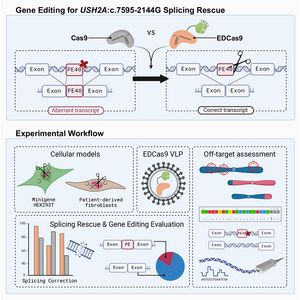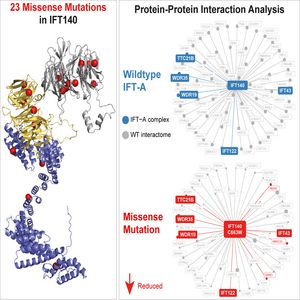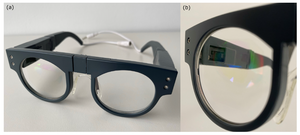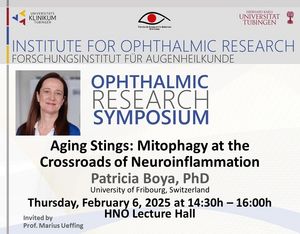The News Section
New gene editing approach shows promise for specific Usher Syndrome a rare cause of hearing and vision loss
Read moreScientists and clinicians from the Center of Ophthalmology in Tübingen together with colleagues from the Department of Oncology tried a EDCas9, which…
New Hope for Hereditary Retinal Diseases with the new "RD TREAT" program
Read moreThanks to multi-million funding, three innovative therapeutic approaches from Tübingen Department of Ophthalmology can be further developed.
Microfabrication Aspects for the Integration of Soft Polymers in Implantable Sensors
| Ophthalmic Research SymposiumRead moreby Simon Binder
Dark Mode und Blaufilter: Was diese Features wirklich für unsere Augen am Bildschirm bringen
Read moreLesen und Arbeiten am Bildschirm sind anstrengend für unsere Augen. Einstellungen wie der Dark Mode oder auch Blaufilter sollen dagegen entlasten.
iPSC-derived RPE cells from donors were used to study the combined effects of genetic and environmental AMD risks.
Read moreAge-related macular degeneration (AMD) is one of the main causes of blindness in the elderly population and is caused by a combination of risk…
How genetic mutations in a protein complex affect cilia, leading to ciliopathies
Read moreA group of scientists from IOR in Tübingen together with colleagues from Heidelberg University, and University College London has systematically…
Kurzsichtigkeit als wachsende Herausforderung
Read moreProf. Frank Schaeffel vom Forschungsinstitut für Augenheilkunde, Tübingen war wieder als Experte gefragt.
Enhancing Augmented Reality: Study Explores Brightness and Resolution in Holographic Retinal Displays
Read moreA collaborative Study between the "Applied Vision Research" Lab at the Institute for Ophthalmic Research, University of Tübingen, and Bosch Sensortec…
Aging Stings: mitophagy at the crossroads of neuroinflammation
| Ophthalmic Research SymposiumRead moreby Patricia Boya












